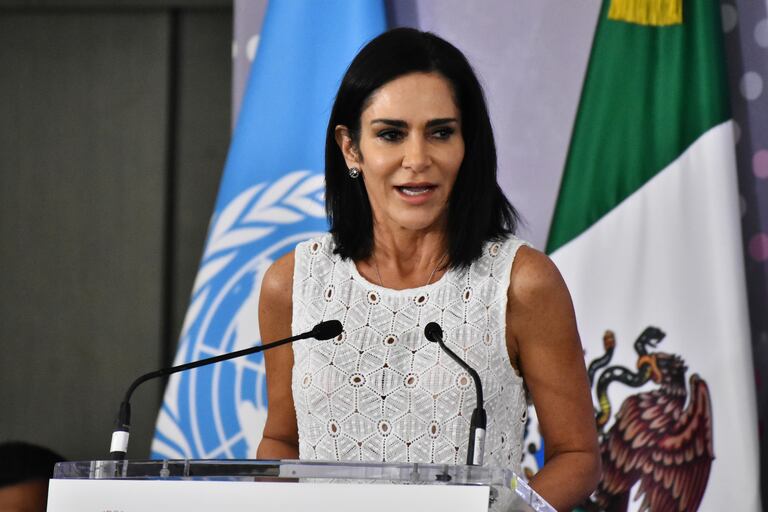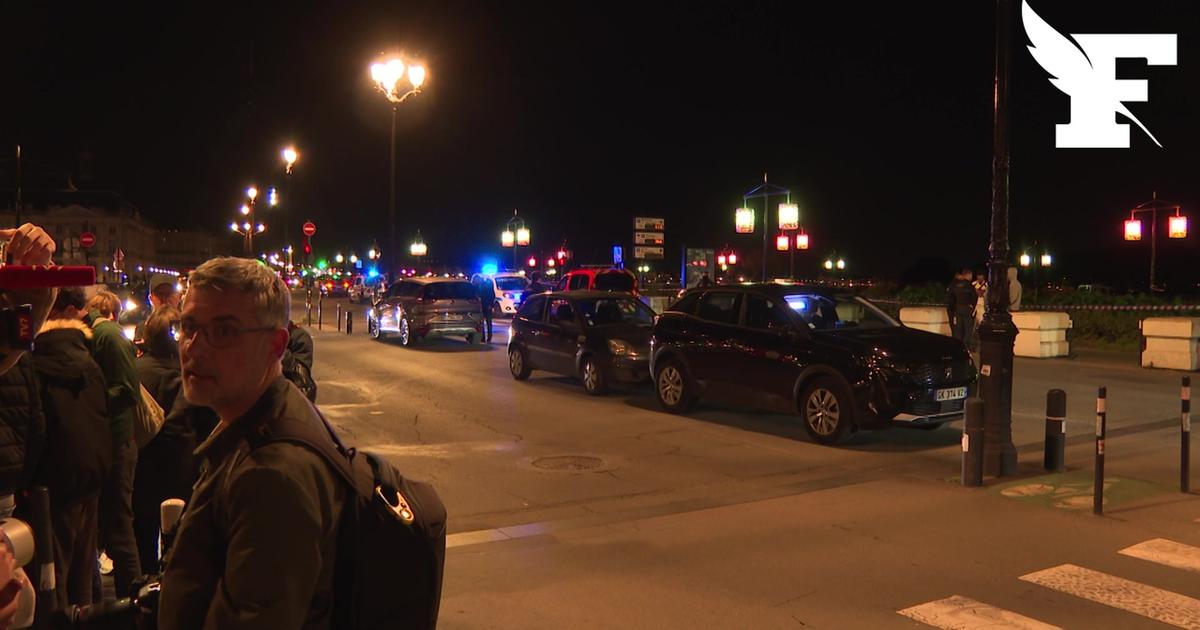Lydia Cacho, at the launch of an initiative against femicides in Mexico in 2019.NurPhoto / Getty
In the next few days, a judicial decision will be made public that could change the course of the Lydia Cacho case.
In December 2005, the journalist was tortured for denouncing an international network of child trafficking in which Mexican politicians and businessmen are involved.
After years of seeking justice, a court in Quintana Roo finally ordered in April of last year the arrest of the probable intellectual authors of these events.
It is a milestone in the fight against impunity in one of the most violent countries in the world to practice journalism.
But now it is possible that this order will fall and worse still, that any possibility of sanction against the organized structure of responsible power will collapse.
Lydia Cacho was arbitrarily detained by a group of police officers on December 16, 2005 in Cancun and taken by vehicle to the city of Puebla.
On the way she was tortured.
These attacks occurred as a consequence of the publication of the book
The Demons of Eden: the power behind child pornography
, about an international network of sexual exploitation of girls and boys between four and 14 years of age.
The book mentions entrepreneurs Jean Succar Kuri and Kamel Nacif as responsible.
And it also mentions Emilio Gamboa and Miguel Ángel Yunes among other powerful businessmen and politicians as members of the network.
As a result of these events, a judicial investigation was launched into the acts of torture against the journalist.
However, the matter remained in impunity, stalled, without any person prosecuted, nor truth, nor reparation.
Almost ten years later,
ARTICLE 19
presented together with the journalist a petition to the UN Human Rights Committee to review the case due to the inactivity of the Mexican State.
In December 2014, two months after submitting the communication to the United Nations, the Office of the Attorney General of the Republic (PGR) brought criminal action against two judicial police from the state of Puebla who directly perpetrated the torture and on the orders of their superiors.
One of them, José Montaño, was captured and sentenced for the crime of torture (currently in prison) while the other is a fugitive.
In December of this year, Montaño will serve the entirety of his sentence.
Five years later, on April 11, 2019, a court in Quintana Roo finally issued arrest warrants against Mario Marín, Kamel Nacif, the former director of the then Judicial Police of the state of Puebla, Hugo Adolfo Karam Beltrán;
and the former Commander for Compliance with Judicial Orders of the then Puebla Attorney General's Office, Juan Sánchez Moreno.
Of the latter, to date only Sánchez Moreno has been arrested, prosecuted and sentenced for the crime of torture.
But Marín, Nacif and Karam are still at large.
The inexplicable thing is: Why a year and a half after its issuance have the orders not been executed?
Lydia herself has provided information on the whereabouts of her attackers, but the inaction of the Attorney General's Office on what the journalist contributed raises doubts about the institution's determination.
Contrary to being captured, Marín, Nacif and Karam filed amparo proceedings against the arrest warrants, alleging the existence of procedural violations and the lack of evidence against them, receiving particular mention those publicly known telephone calls in 2006 between Marín and Kamel and whose illegality the defense alleges.
The theory of the case of the Attorney General of the Republic and
ARTICLE 19
, consists of the putting into operation of an organized power structure that activated the state apparatus to punish the journalist.
And the phone call is the strongest evidence of this, since it shows that Kamel Nacif ordered the crimes against Lydia and that Marín used the State to carry out those orders.
However, since these calls were not incorporated into the file as a result of a court order to intercept communications, but were leaked to the media who later made them public, the Court could order that evidence be excluded from the process.
The veracity of the content of the call is not in doubt, but the validity to maintain the proof in the process.
On October 2, the session was held in the Quintana Roo court that finally resolved these appeals.
This decision -which is not yet public- is fundamental, since the possibility of finding justice after 15 years of seeking it could depend on it.
In its ruling, the protection granted to Marín, Karam and Nacif returns "the ball to the court" of the magistrate for her to decide again.
ARTICLE 19
is aware
that there is strong pressure on the federal courts in Quintana Roo that have heard the case.
The court left open the possibility that the magistrate who initially issued the orders on this occasion would back down and decide to deny them.
It should not be forgotten that due to the interests of organized crime that are being played out here, and the power of the people involved, judges and magistrates require special measures to act with independence and security.
So far the Federal Judicial Council has failed to deliver those guarantees.
Recent advances in justice - and attempts by the likely perpetrators to flee from it - have brought new threats to Lydia.
On July 31, 2019, his home in Cancun was raided by unknown persons who entered his home and stole journalistic material related to his investigations into pedophilia in Mexico.
For this reason, the journalist had to move outside the country without security conditions for her return to date.
Likewise, derived from the petition filed in 2014, the United Nations Human Rights Committee issued on July 31, 2018 a resolution against the Mexican State, determining that the events that occurred in December 2005 violate Lydia's human rights. to non-discrimination on the basis of gender, not to be subjected to torture, to personal liberty, to personal integrity, and to freedom of expression, it also declared that the State did not comply with its obligations to provide an effective remedy to investigate the guilty.
It was the first time that the committee condemned a State for failing to protect a journalist and the first time it ordered an investigation and punishment of those responsible.
For this reason, the authorities activated the investigation against those responsible at the highest level.
Now there is a risk that this will never happen.
This article was written by the Mexico and Central America office of Article 19.








/cloudfront-eu-central-1.images.arcpublishing.com/prisa/OWZ46IC2URACHO3QA7VMH4RKLI.jpg)
/cloudfront-eu-central-1.images.arcpublishing.com/prisa/3VG35KWHORAZFCS2WL2ZCQF26Q.jpg)